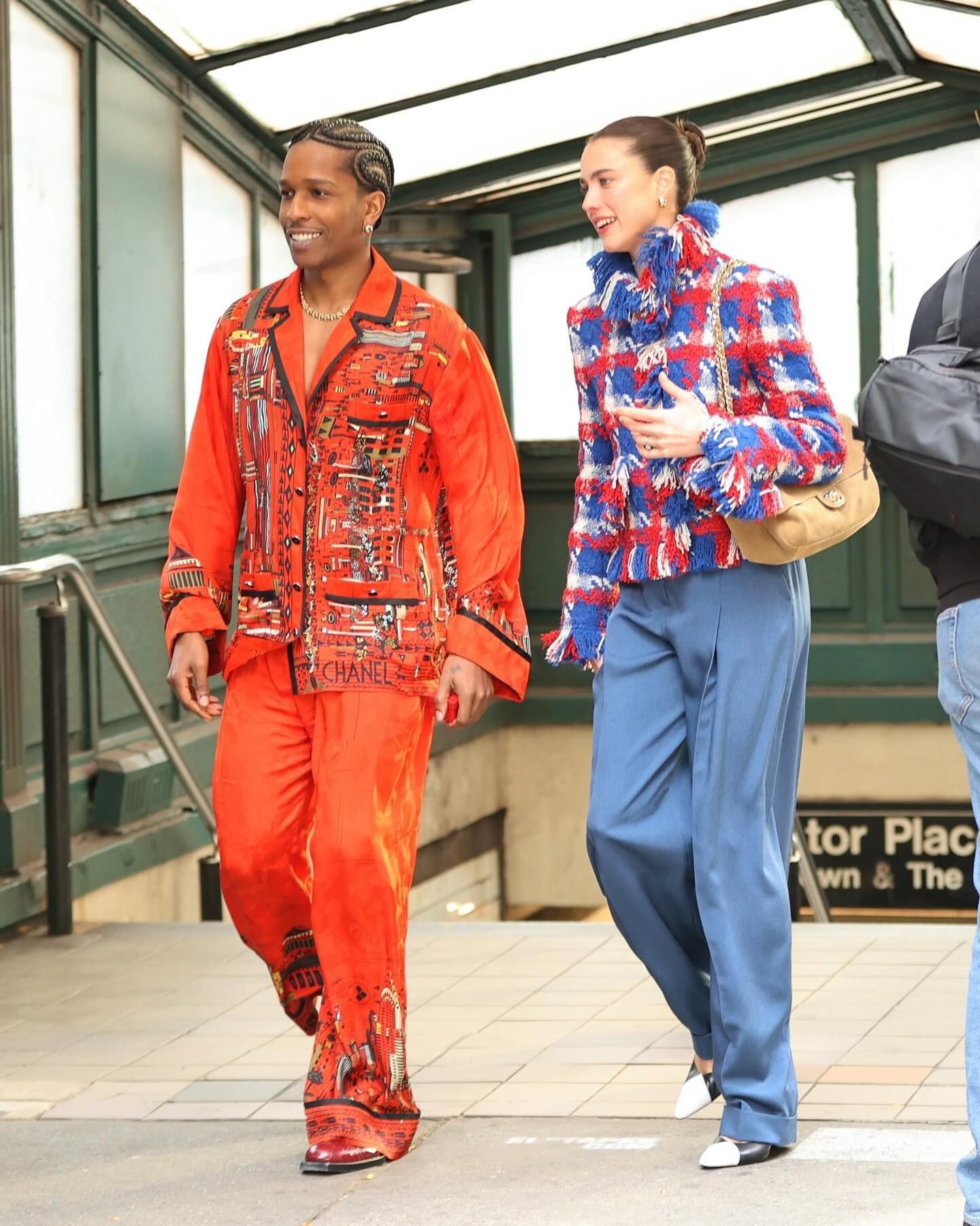
History of anglophile flags in pop culture Will they really come back?
A flag is not just a piece of cloth, but an icon that, as such, carries with it a whole range of cultural meanings that may or may not be respected. When the return of the fantastic indie sleaze, the movement straddling the 2000s and 2010s, was announced early last autumn, the question arose among the most passionate about the aesthetic: so will we go back to wearing clothes with British and American flags? The style takes its name from indie music, a genre that found ample room for growth in the United Kingdom and the United States during those years thanks to bands like the Strokes, Arctic Monkeys, and Libertines. Fans of the three bands wore t-shirts, hats, and bags with reproductions of the Union Jack or the Stars and Stripes not so much out of patriotism, but out of rebellion. Just as in recent years, communities usually marginalized by the world of sports have appropriated aesthetics like balletcore or blokecore, indie sleaze wears the colors of its nation to draw the attention of those in power. After all, it was the years of the Recession: what better way to face a dark period than by laughing at it?
History of the Union Jack in fashion
Even the origins of the British flag in fashion are rebellious. It starts from the streets and the stages of fearless bands like the Who or the Rolling Stones, but even more so from the outfits of the punks, and the corresponding group the Sex Pistols. As expected, since she herself was a contributor to the movement and the success of Sid Vicious's band along with partner Malcolm McLaren, it was Vivienne Westwood who first brought the Union Jack to the runway. For a punk, wearing the British flag was the height of satire, an anti-establishment joke that defaces an institutional image with that DIY look of safety pins and torn t-shirts. It was a provocative trend until Westwood brought it to Fashion Week in the form of rococo reiteration, despite herself being part of the subculture. In the '90s, the Union Jack became a status symbol worldwide: Ginger Spice wore it at the 1997 Brit Awards (a trick Dua Lipa replicated for her 2021 performance), it was brought back on stage by bands like the Oasis, and then again by Kate Moss during the indie sleaze era and Alexander McQueen, the great dissident of high fashion, printed it along with the face of Queen Elizabeth II on a FW09 dress (but earlier, in the '90s, on a coat for a David Bowie performance). Still today, on the runway as well as on the streets of London, the Union Jack is used by designers, creatives, and singers to send critical messages to the government. During the years when Boris Johnson was Prime Minister, it was rapper Stormzy who took the stage at Glastonbury 2019 wearing a bulletproof vest decorated with a white, red, and blue print, while in September 2022, for the "No Borders" show, designer Dilara Findikoglu brought the same colors on a corset mini dress, in full Westwood style.
History of the American flag in fashion
After recounting the reasons that led the most anti-nationalist communities in the United Kingdom to wear clothes and accessories with the Union Jack, it becomes easy to explain how the same thing happened in the United States, perhaps the most patriotic country in the world. After designers like Ralph Lauren brought it back in their old money collections, among blue pullovers, white t-shirts, and blue jeans, it was the turn of subversive creatives. Throughout history, the American flag has been taken as a style example by the most conservative Republicans, who wear it printed on camouflage shirts with the eagle, another symbol of the country, but also by liberals who mock them by copying the look with a slightly more queer cut. It was worn by the hippies to protest against the Vietnam War, while on the runway it was used by designers like Miguel Androver, Jeremy Scott, and Marc Jacobs to make a statement. For several years, starting from the 9/11 attacks in 2001, the opposite happened, and even the least politically inclined stars of pop culture appeared in public wearing the American flag, a phenomenon that years later gave rise to the ideological transformation of the flag as a “hot” graphic, primarily under the guidance of Lana del Rey. In that case, no one forgets the denim micro shorts with star-spangled pockets.












































































